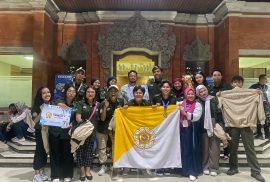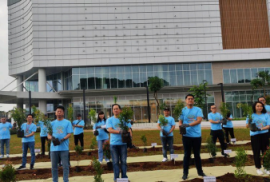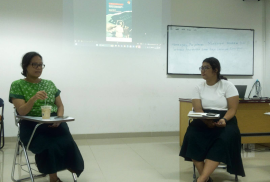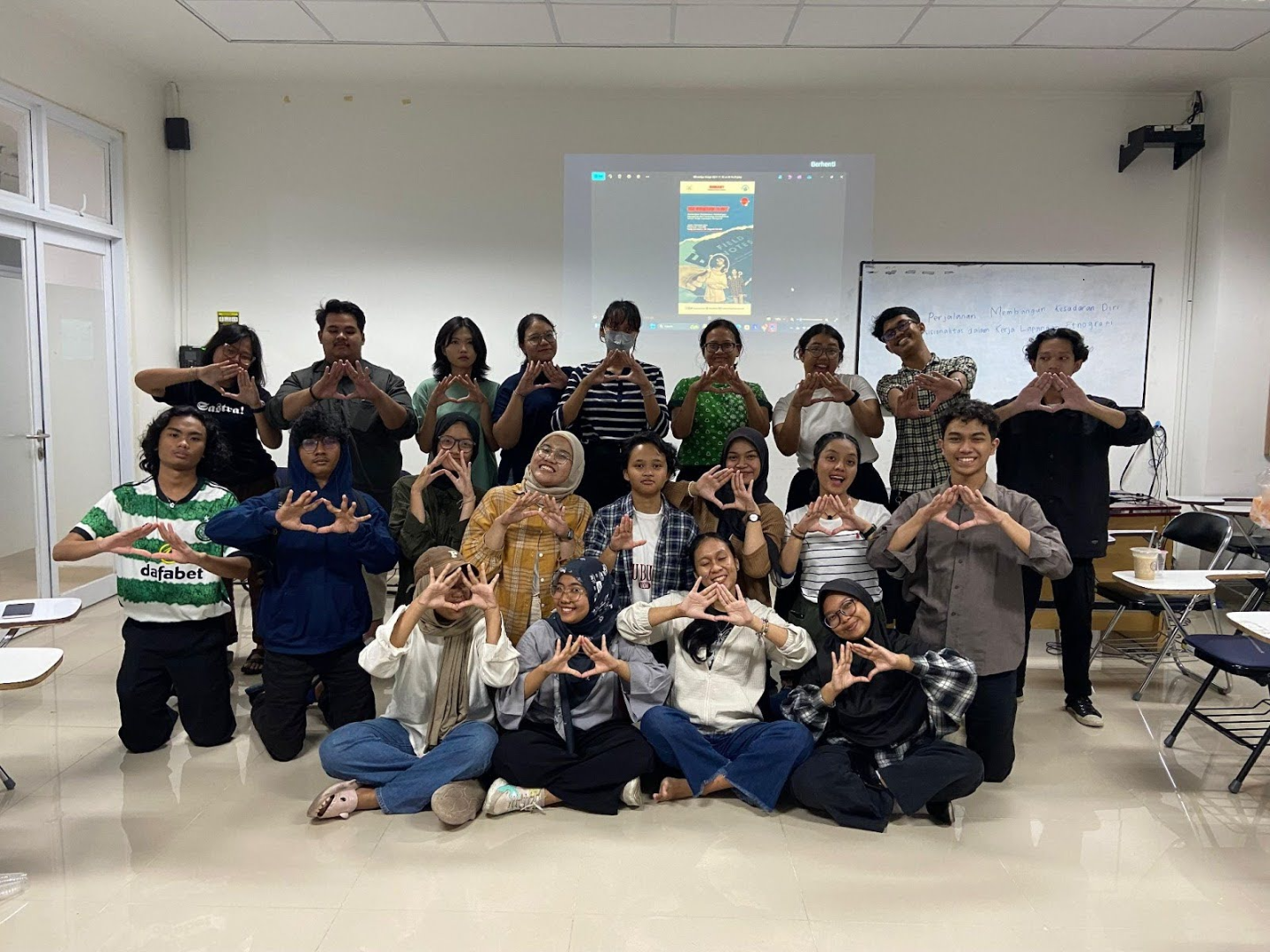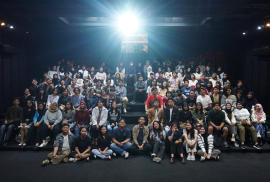The UGM student team that is a member of the Tourism Student Association (HIMAPA) FIB UGM has completed Abdidaya (Community Service and Empowerment Event for Student Organizations) 2024 as a representative of UGM in early November. This activity was held on Thursday-Sunday, November 7-10, 2024 at Udayana University, Denpasar, Bali.
Abdidaya Ormawa is the culmination of the implementation of the PPK Ormawa 2024 program for 5 months of program implementation from June to October. This activity was realized as an award event for the PPK Ormawa teams that have completed their respective programs.
Please note, PPK Ormawa was attended by 2,289 teams from 359 universities and only 622 teams received funding and were entitled to carry out the program. Only then of the 622 teams that passed the funding, only 160 teams from 66 universities were entitled to participate in Abdidaya Ormawa and struggled to get award categories starting from the Implementation Team, Ormawa, Partners, Accompanying Lecturers and Universities.
The PPK Ormawa HIMAPA team that carries the program with the title, “SEAN (Sembrani-Agrotourism and Education): Development of Sembrani Watusigar Tourism Village based on Community Based Tourism (CBT)” managed to get two awards at the event.
The PPK Ormawa HIMAPA UGM team managed to achieve several achievements in the awarding night, among others:
Achievements achieved:
– Best Student Organization 1 Category of Tervisioner Ormawa
– Best Assistance Lecturer 2 Category of Assistance Lecturer with Understanding of Community Empowerment
Consisting of 13 students from the Tourism Study Program and two from the Faculty of Agriculture, this team is diversified and well-prepared to support the implementation of the SEAN program. In addition, the team accompanied by Mohamad Rachmadian Narotama, S.T., M.Sc., Ph.D. as an assistant lecturer also received full support from various parties ranging from the Watusigar Village Government, Gadjah Mada University, Partners, Alumni and various other parties.
Vision of the Tourism Student Association (HIMAPA)
“Making the Tourism Student Association (HIMAPA) as a form of organization that can become a “forum” for UGM Tourism S-1 students to work together in realizing innovations based on integrity.”
Motivated by a strong vision of the Student Organization (Ormawa), making the Tourism Student Association (HIMAPA) has a strong determination and background in the implementation of PPK Ormawa. This aims as an effort to increase the capacity of student organizations through various coaching processes that are implemented in the form of community service and empowerment. The topic of the Tourism Village taken is considered to be in line with the vision and mission of the ormawa and various other assessment components have led Himapa ormawa to get the Best 1 award in the Tervisionary Ormawa category.
The dedication of the accompanying lecturer, Mr. Mohamad Rachmadian Narotama S.T, M.Sc, Ph.d in providing support and guidance to the Himapa team also paid off by being awarded in the Best 2 Lecturer category with the Best Understanding of Community Empowerment.
[Humas FIB UGM, Author: Ferdian, Editor: Sandya]

